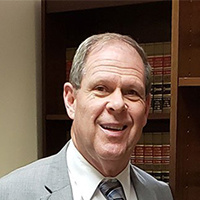Clover DUI-DWI Lawyer, Virginia
Sponsored Law Firm
-
 x
x

Click For More Info:
-
Tillotson & Martin, LLP
DWI/DUI Defense throughout the Entire Commonwealth of Virginia » view mapCriminal Defense Virginia’s Premier DWI/DUI Defense Firm
Michael C. Tillotson is the one to choose when it comes to DWI/DUI defense in Virginia.
800-878-1431
Not enough matches for Clover DUI-DWI lawyer.
Below are all Clover Criminal lawyers.
Sidney H. Kirstein
✓ VERIFIEDAccident & Injury, Divorce & Family Law, Criminal, Real Estate, Business
I first fell in love with the idea of becoming an attorney while watching fictional defense attorney Perry Mason on TV. Played by Raymond Burr, that c... (more)
Mark Joseph Peake
✓ VERIFIEDAccident & Injury, Criminal, Traffic, Lawsuit & Dispute, Personal Injury
Mark Peake has been practicing law in the areas of personal injury, insurance defense, civil litigation, products liability, and criminal defense sinc... (more)
Michael Thomas Trent
DUI-DWI, Criminal, Personal Injury, Car Accident, Accident & Injury
Status: In Good Standing
FREE CONSULTATION
CONTACT Michael Tillotson Newport News, VA
Michael Tillotson Newport News, VA AboutTillotson & Martin, LLP
AboutTillotson & Martin, LLP Practice AreasExpertise
Practice AreasExpertise


